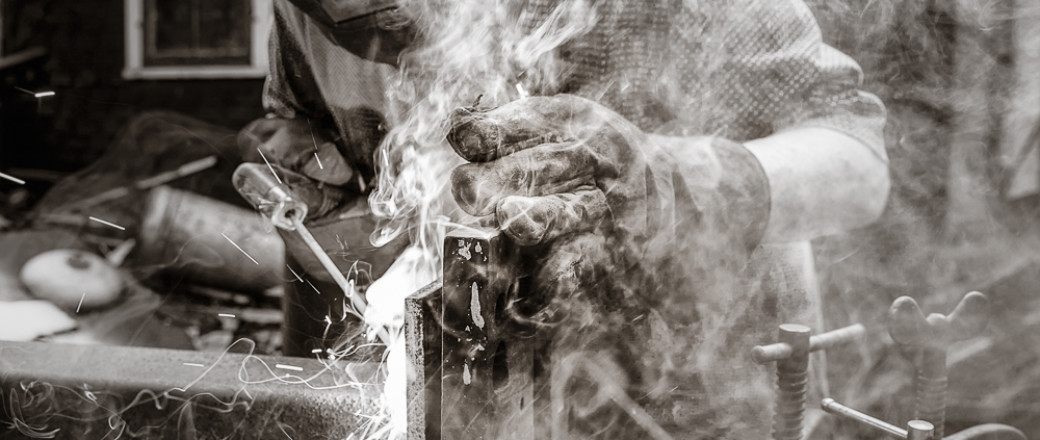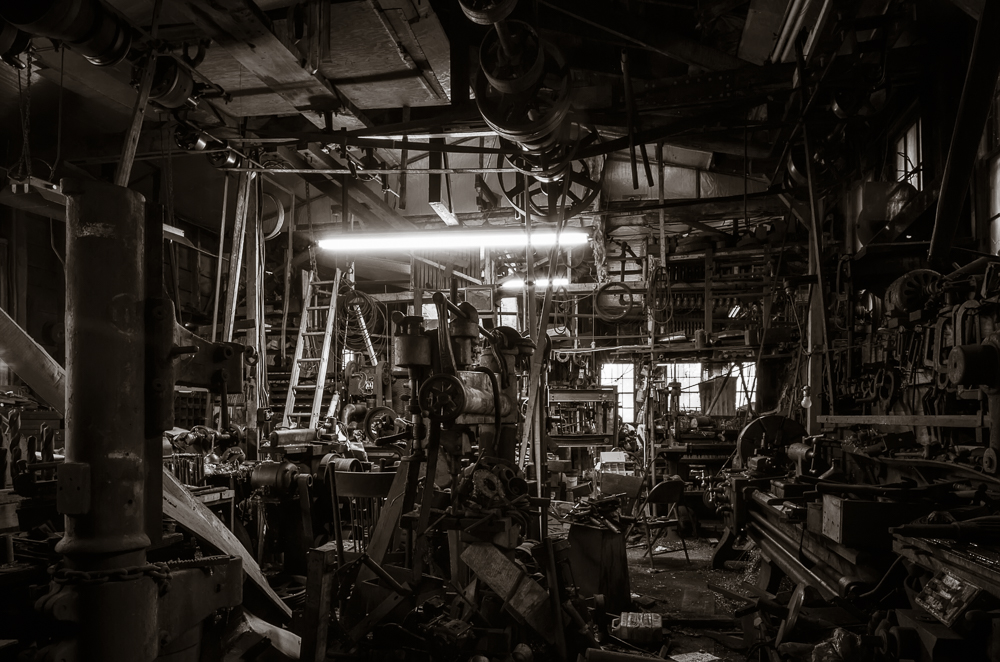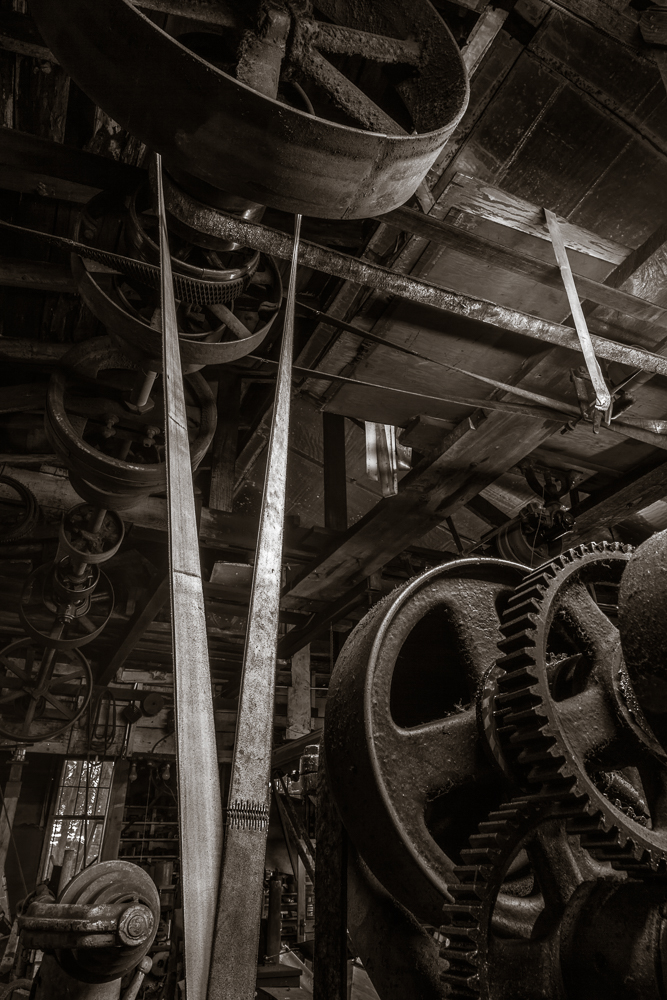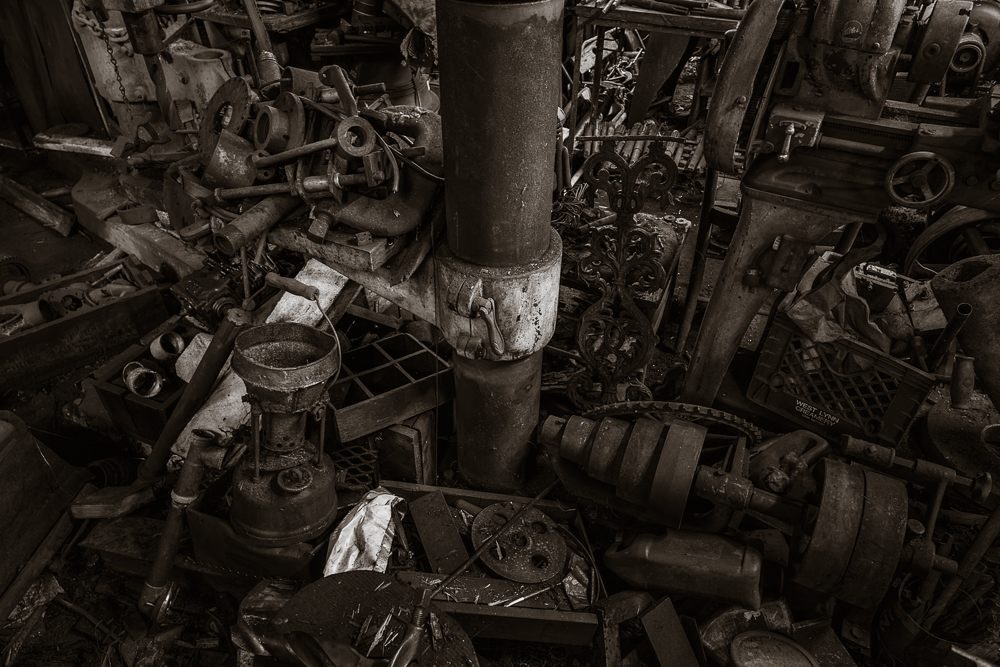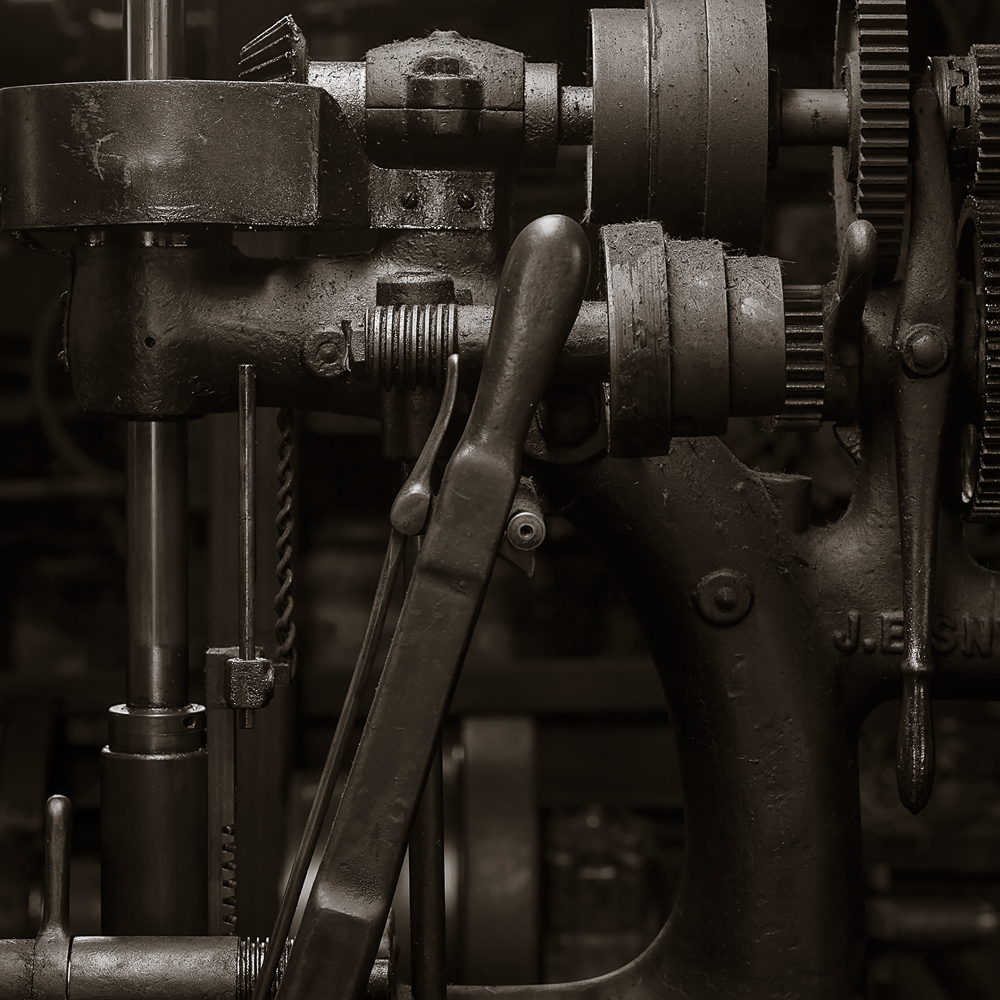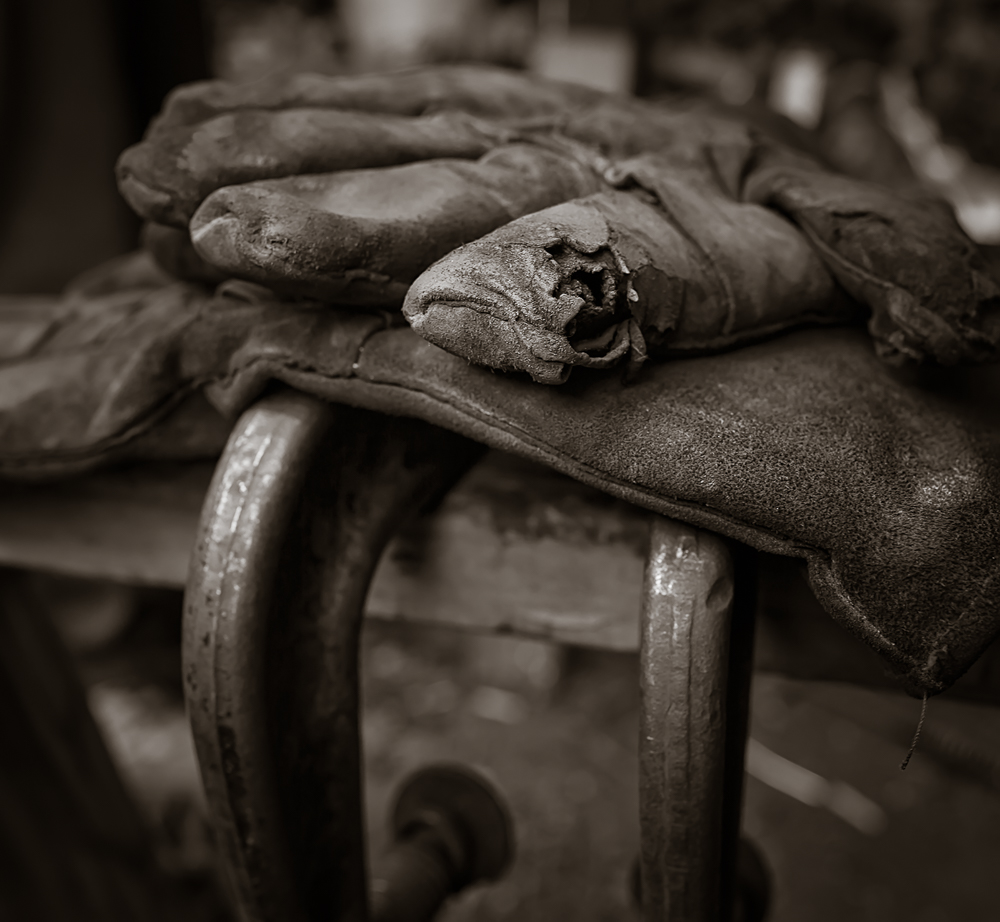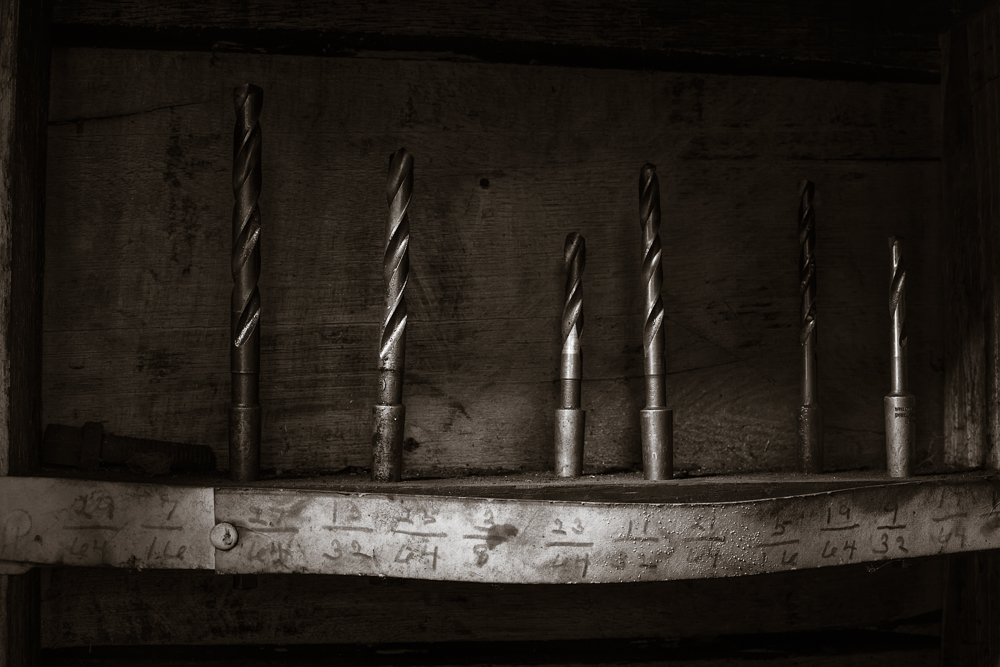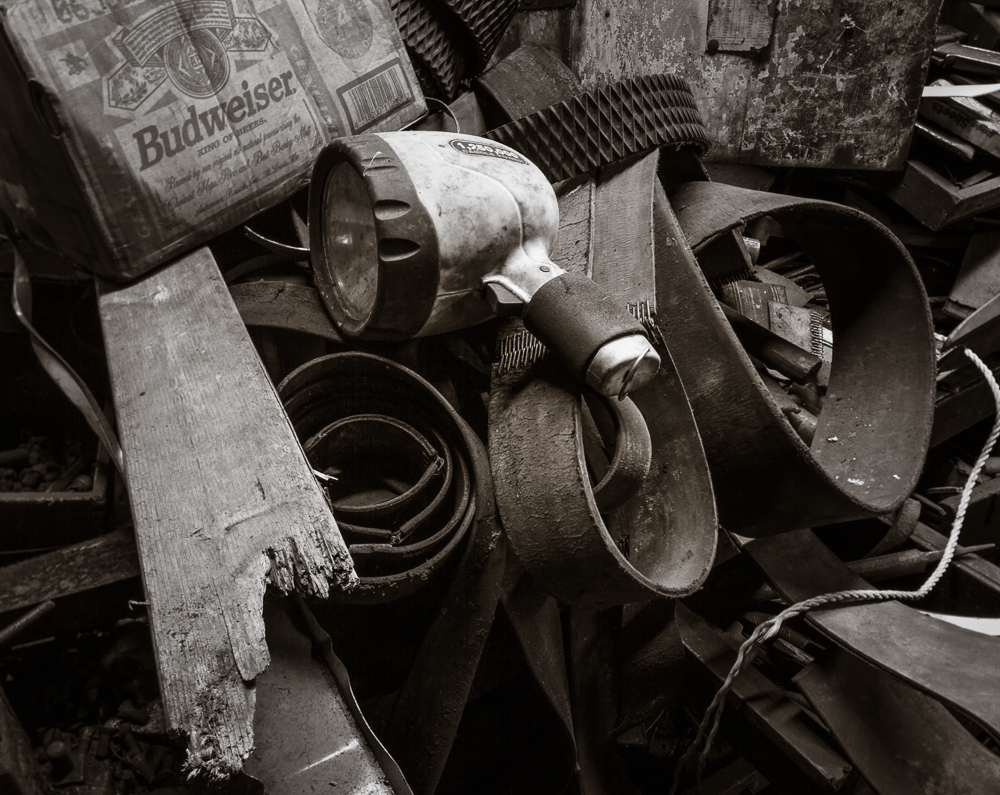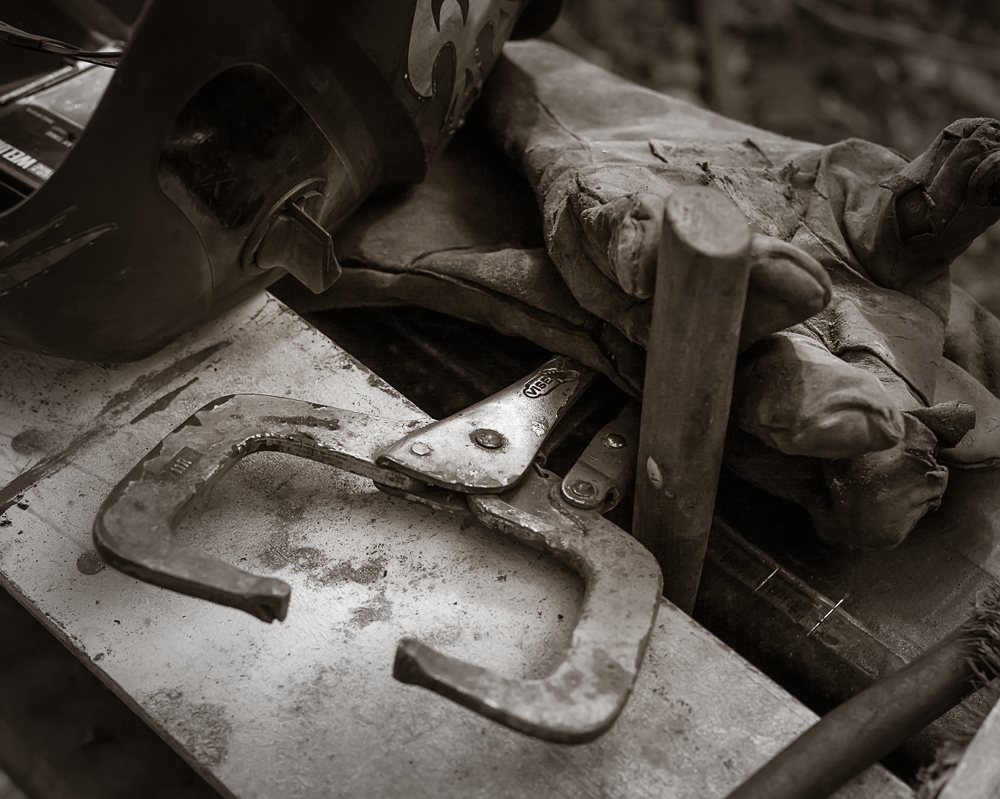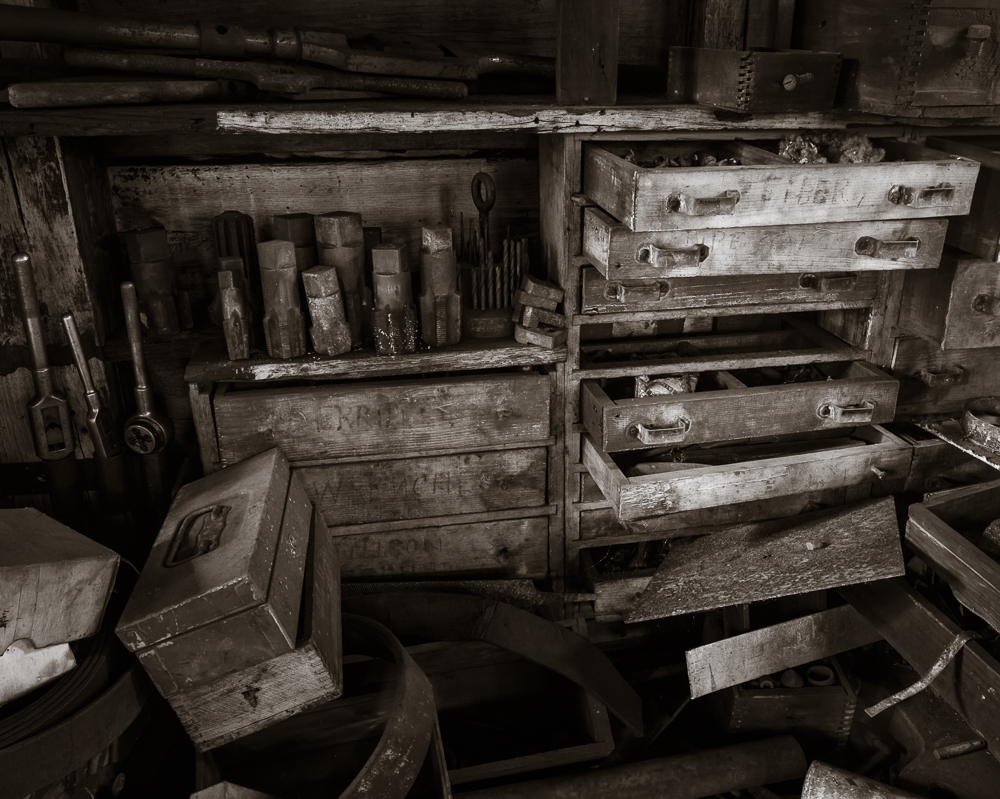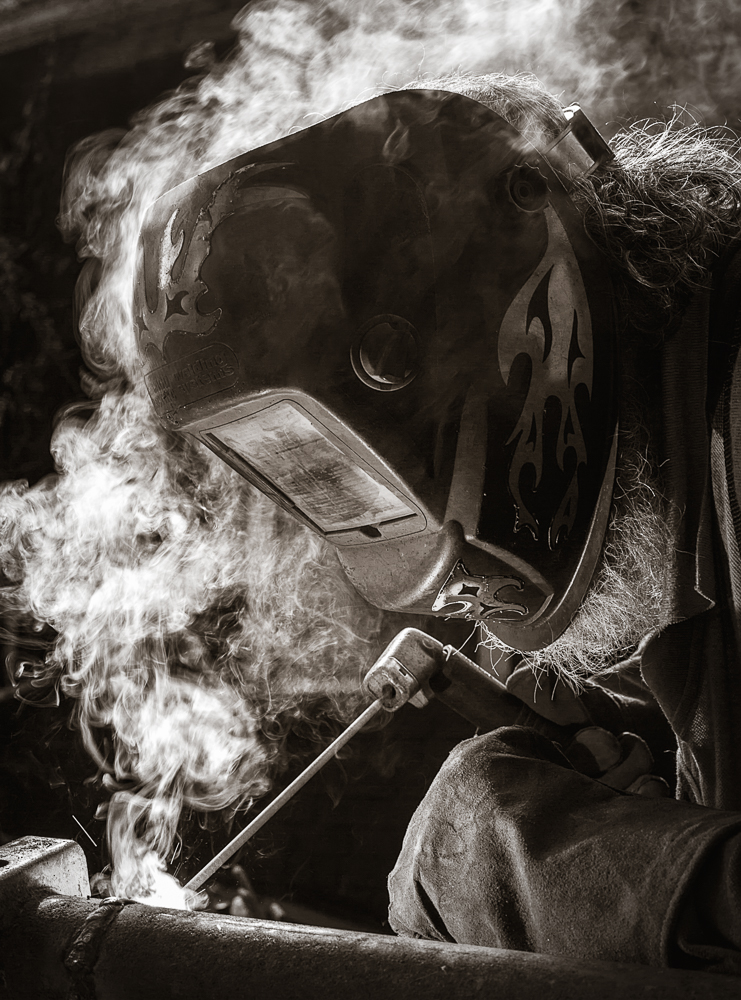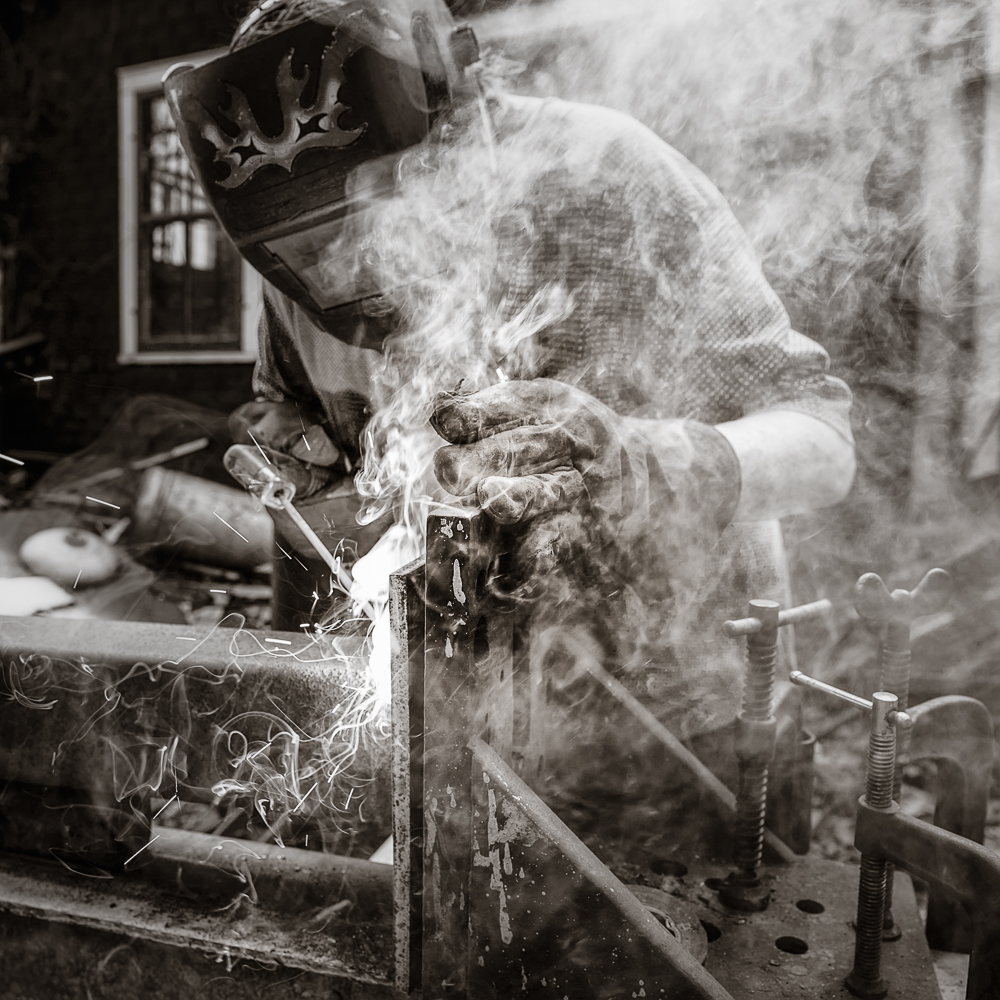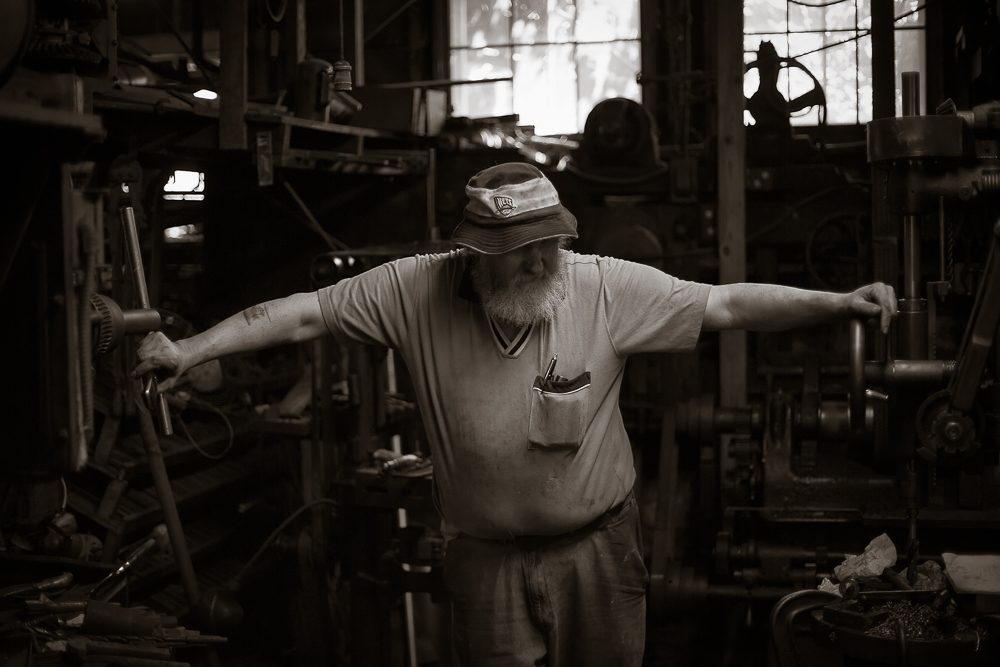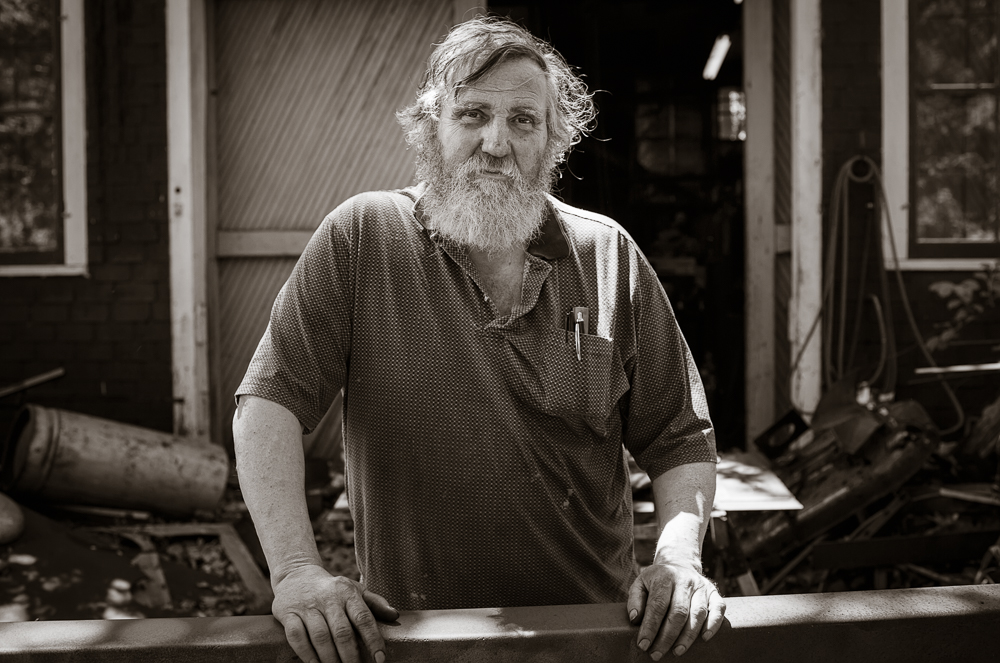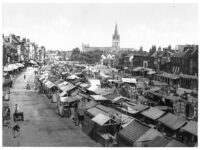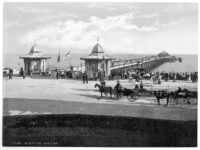I was five years old when I first encountered Peter and Welles garage. My grandfather brought his lawn mower there to be fixed. This was an old lawn mower. The kind which arguably should have been laid to rest and there were no longer parts readily available for it. Welles garage was one of few the places you could take an old machine like this to be fixed. Coming from a farming family we had lots of things like this lawnmower and my grandfather had known Peter and his grandfather before him for many many years. Welles garage was fascinating to me as a five year old. This feeling had not changed when I first approached Peter about making photographs there.
Welles garage is much like a time capsule. It has many old metal working machines which were manufactured in the late 1800s. All of these machines are powered by drive shafts and belts which criss-cross the ceiling and swoop down to gears and levers. There are old auto parts, belts, automotive manuals, many which may have not been moved for decades. Welles garage is like looking at the rings of an old tree which give hints of what life was like back to its origins.
Albert Welles founded the garage in 1915. As one of the few places providing fuel for new automobile owners the business grew and Welles garage quickly became one of the staples of the community. At it’s height, before the Second World War, Welles Garage employed two mechanics, two machinists, and a book keeper. But this was not to last. By 1960 there was only one machinist and the shop no longer sold fuel. In 1975 Albert, now in his eighties, retired and his grandson Peter took over the garage. Peter, an army veteran and graduate from Worcester Polytechnic Institute, has always enjoyed the challenge of fixing things. Since then the shop has primarily served a small population of local farmers and fishermen, repairing and machining parts for their older and often unique equipment.
In the shop there is so much too look at – wonderful shapes, curves, lines, tones, textures, light reflecting off the machines, and details hiding in the shadows – all of which provided many photographic opportunities and challenges.
The shop is very disorganized and can be overwhelming (though not for Peter who can find just about anything in the place). Capturing and translating this experience became an important task if the images were to illustrate the essence of the garage. Using compositions based on abstract paintings (Nude Descending a Stair Case by Marcel Duchamp for example) and methods found in Cubism, such as seeking out images which appear to incorporate multiple vantage points of the same scene/object, served as a way to try and address this challenge.
Peter’s work and Peter himself, were more straight forward. Welding and sandblasting create smoke, sparks, and swirling dust which provided many opportunities. And while Peter is private person he did tolerate having his photograph made every once in awhile.
Over the course of four years I made many photographs of the shop, Peter working, and Peter himself. How they work together has been the last challenge of the project. Should the focus be about the work? Peter? The shop? Arguably each could be the focus. Much like the shop itself it can be overwhelming and difficult to know were to begin or perhaps more importantly end. But if all of the these elements are not presented then the experience would be incomplete.
My hope with this project is to capture some of the essence of Peter and Welles garage. It is a place which provides a glimpse back to older times which may not last. A place, and more importantly a person, who has captured my imagination and been a friend for many years.
John Leuba (Born 1967, New London, Connecticut): After two years at the Rochester Institute of Technology studying photography, John transferred to Emerson College in Boston to study filmmaking, and was later accepted to the American Film Institute in Los Angeles. He explains, “It seemed a perfect marriage of interests; an opportunity to investigate the art of photography in an intersection of theater and film.” Eventually, personal concerns, other interests, and exhaustion ended his infatuation with the film business and he acquired a Master’s Degree in Social Work. He now works as a supervising social worker helping people who have mental health disorders and substance abuse problems. John lives in the quaint New England town of Mystic, Connecticut with his wife Laura, 13-year old daughter Catherine Marie, and two fat cats.
Website: archive.leubaphoto.com

